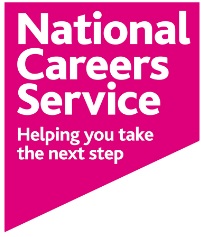As with Facebook, employers/ recruiters make extensive use of Twitter, giving out information about their organisations as well as actually posting job vacancies. Therefore, it makes sense to incorporate Twitter into your overall approach to job searching.
Create a professional bio with personality
Keep it professional and concise but let your personality shine through. Use keywords to make you searchable for employers – for example, refer to relevant qualifications, your location, and experience that is key to the type of role you’re searching for.
“Level 6 qualified careers professional and careers advice blogger from London. Passionate about making a difference. Often found in a coffee shop.”
Build your Twitter network
To truly build a presence, you need to build a following – this can be tricky to do and takes time. To start with, follow companies and individuals that you’re interested in, and who work in your field. Add your colleagues and peers, suppliers and anyone you’ve collaborated with on projects too.
Following companies, brands, people or issues of interest to you will give you an insight into current issues and industry knowledge. Engaging with their tweets (commenting, sharing) will grab their attention and boost your profile.
Keep it professional
You can use your own tweets to show your interest or expertise in a field – thought leadership can be incredibly powerful – but remember to keep your profile professional at all times. Don’t tweet anything you wouldn’t want a current or future employer seeing. Tweets about social life excesses, or which are heavily opinionated, will definitely not impress a future employer. Remember, everything can be traced back to you, and according to a 2018 CareerBuilder survey, 70% of employers use social media to screen candidates during the hiring process.
It’s all about the conversation. Remember this is a professional conversation, which should consist of listening, contributing your own thoughts and responding to others. Make sure your tweeting reflects this etiquette with a mix of tweets, retweets and mentions.
Use Twitter to Research
Research companies and job roles. Look at the background and interests of people in similar roles to the one you aspire to. Keep abreast of the current news for companies that you’re interested in working for. Paying attention to this will pay dividends if you manage to secure an interview.
Search Job Vacancies
Many organisations will post their live job vacancies on Twitter. Keep an eye on companies’ newsfeeds, as well as popular job searching hashtags such as #jobs, #jobsearch #Hiring #JobsinKent. You can explore popular hashtags using tools such as Hashtagify.me.
Use the Twitter search function to search effectively for jobs – there’s an art to doing this effectively. Use the formula:
location + seniority level = ‘hiring’/’vacancy’/’job’ + industry
to get the best results. For example: ‘Kent graduate job marketing’
Engage directly
The beauty of Twitter is its immediacy and direct nature. It could give you access to the head of HR for an organisation you admire without a formal introduction, so take advantage of that fact.
Consider changing your DM settings to allow anyone to contact you – that way, recruiters and employers will always be able to contact you directly.
The National Careers Service provides free, up to date, impartial information, advice and guidance on careers, skills and the labour market in England to anyone aged 13 and upwards.
To speak to a National Careers Service adviser, call 0800 100 900 or use our webchat (8:00am to 10:00pm, 7 days a week)

Other Articles You May Find Useful
How to Use Facebook to Get a Job
How to Use LinkedIn to Get a Job

